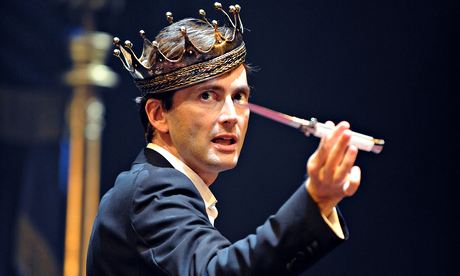
Anthem for Doomed Youth Wilfred Owen called his most famous poem. In 1917, when he wrote it, "doom" was no overstatement. Hundreds of thousands of healthy teenagers would not see the age at which they could vote, their names (but nothing else) to "live on" scratched on war memorials. Pointless immortality.
Literature has always echoed with the gloomy anthems of doomed youth, from Hamlet's first outburst about how weary, stale and unprofitable seem to him the uses of the world (if the prince of Denmark thought his condition unprofitable, he should have tried getting by in Elsinore with a jobseeker's allowance of whatever £57.35 is in kroner).
A spectacularly influential literary complaint about the woes of youth was Goethe's The Sorrows of Young Werther. The principal sorrow of the young hero was that he couldn't have it away with his best friend's wife. So sorrowful that he kills himself. Werther inspired an epidemic of copycat suicides among the young – as many as 2,000 it is claimed. The book was banned in Leipzig, Copenhagen and Milan. Goethe wrote it when young, and in his later years disowned it as an immature effusion. Like acne.
The old have never had much time for the complaints of the young. "Puking Wertherism", Thomas Carlyle called it. I recall the phrase every time I step daintily over the pools of vomit in Saturday early morning Camden in London – most of it, for a certainty, thrown up from young throats. Youth, said George Bernard Shaw (who lived to be 94), is wasted on the young. But, dammit, they have a monopoly of the thing.
It was no country for old men, said Yeats, looking round him in 1928, aged 63. It was the young, he ruefully observed, who had what made life most worth living. The young were, the great Irish poet observed, spawning like mackerel. Lucky them. He felt an oldster's envy and toyed with the idea of having monkey gland juice injected (Steinach technique) but settled on vasectomy, thinking the retention of his precious bodily fluids would up his sexual vitality to youthful levels. It didn't.
It's generally unappreciated when one's young how much "biological capital" one has, and how brief one's possession of it is. Male and female sexual potency peaks in the middle to late teens. Raw brain capacity at about the same age. After the age of 50 the organ shrinks ("age-related white-matter atrophy", they bleakly call it) faster than biceps. That toilet training so laboriously learned in Shakespeare's first age of man, lost in the seventh. Back to nappies. And age-related stupidity.
Does Victoria Beckham relish the idea of being 40? For every woman, said Jacqueline Susann (author of the super-selling anthem for doomed female youth, Valley of the Dolls), "40 is Hiroshima". In one of his most beautiful poems, AE Housman says of an "athlete dying young" (whom he clearly loved) that, at least he will never suffer the horrible decay of age.
What do the old have to compensate for their shrunken glands, bald pates and post-menopausal ovaries, cancer-prone prostates and breasts? Dosh and real estate. HG Wells wrote a fine novel on the subject, The Sleeper Wakes. A man goes into a vegetative coma for 200 years. He wakes up the richest man in the world, thanks to the fact that he's the oldest and his bank balance has swollen inexorably with compound interest. It's science fiction, but one could read it as a fable about pensions and mortgages and how, today, they enrich the old and impoverish the young.
George Orwell believed that the most immoral thing a person could say is: "It will see my time out." But the majority of the old in this country, I suspect, think just that. A demographic structural unfairness has crept up on us, and, chances are, it's going to get worse. It ought to spark intergenerational conflict or, at least, some clear long-term thinking of the subject.
But friction between the generations will probably not rise above grumble level and a spate of ever more eloquent literary anthems for doomed youth. The young, a cynic might say, are, as they have always been, too busy "living" to vote to reverse the unfairness that dooms. The old, whose time is almost up, are very careful to hobble to the voting booth to ensure it does, indeed, see out their time. I certainly will.

